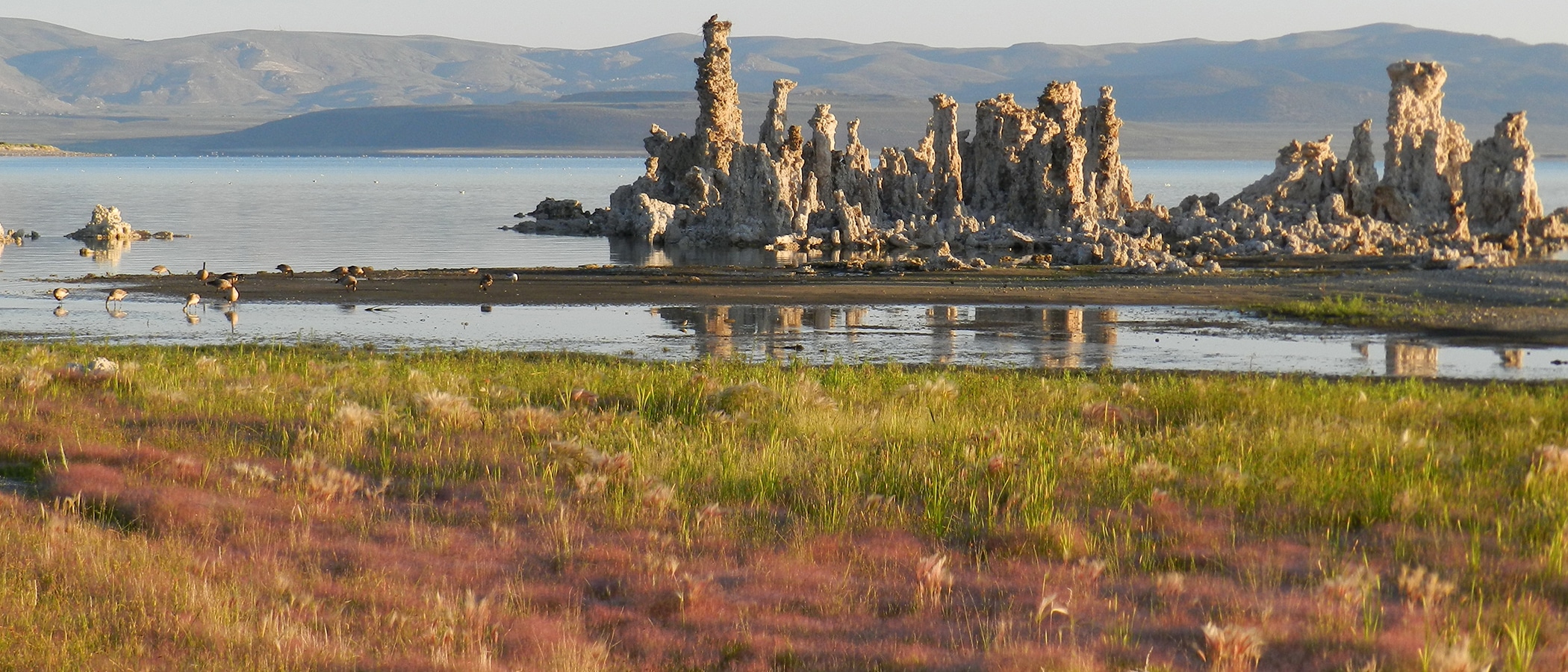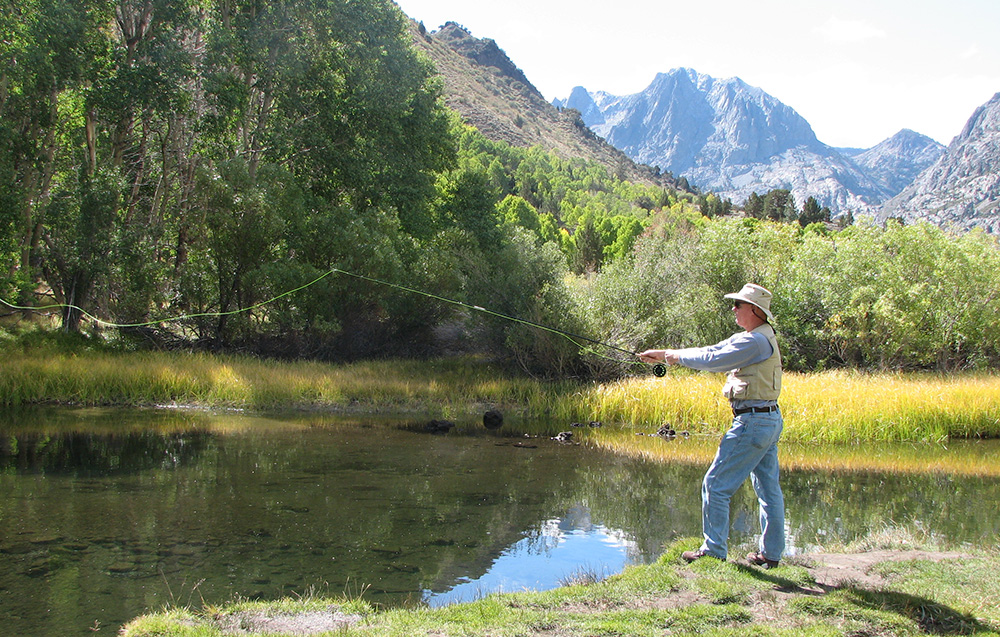
This post was written by Lisa Cutting, 2002-2020 Eastern Sierra Policy Director, 2000-2001 Environmental Resource Coordinator, and 1999 Mono Lake Intern.
Just a month before this year’s fishing season opener, the California Department of Fish & Wildlife (DFW) threw out a lunker of a proposal—a potential change to existing fishing regulations to allow year-round inland trout fishing throughout the state of California, including the Eastern Sierra. According to DFW, the motivation for the change is to simplify fishing regulations statewide.

Since the announcement, DFW has hosted a series of meetings around the state. Locally, the topic has sparked much interest—not only among anglers and fishing guides, but also business owners, seasonal resort owners, and public officials, all of whom have attended outreach meetings in force. Concerns about the proposed regulations include reduced business revenue, the potential for more winter safety issues on ice-covered waters, and the loss of “Fishmas,” the unofficial, beloved opening day holiday.
Special considerations needed for Mono Basin streams
The current proposal is a mixed bag for Mono Lake’s tributaries, which would all be opened to year-round fishing, with special regulations on some waters. Though open to fishing year round, Rush Creek below Grant Lake Reservoir and Lee Vining, Parker, and Walker creeks below Los Angeles aqueduct diversion facilities would retain their current regulation restrictions of a zero bag limit (“catch and release”) and artificial lures with barbless hooks only.
For decades, the self-sustaining trout populations in these sections of Mono Lake’s tributaries have been used as a measure of restoration progress and for that reason have not been stocked. Even though the new regulations would specify a zero bag limit, trout can still be adversely affected by increased fishing pressure, especially in winter when water levels are lowest and conditions are most challenging for fish.
The Committee is focused on restoring the health of the 20 miles of streams in the Mono Basin that are still suffering from the impacts of decades of excessive Los Angeles Department of Water & Power water diversions. The existing zero bag limit regulations are an important part of the recovery program. The Committee consulted with fisheries experts and submitted formal comments on the proposal supporting retention of these restrictions and urging DFW to continue the current winter fishing closure on Rush, Lee Vining, Parker, and Walker creeks for the benefit of the recovering fishery.
The Committee is also supportive of the local community and Mono County initiative to maintain natural fishery reproduction by setting a zero bag limit on Rush Creek waters between Silver Lake and Grant Lake Reservoir during the spawning season to protect mature brown trout. In general, winter angling pressure on trout is problematic in the Eastern Sierra because fish are highly vulnerable during extremely low streamflows when food is scarce and shelter from natural predators is challenging to find.
The challenge to simplify is clear
California is the third-largest state in the nation and the most biologically diverse in terms of habitats. It is also the most populous state—and that population loves to get outside and recreate. DFW is responsible for managing fisheries for recreation as well as the protection of native fish, and the proposed fishing regulations seek to balance those responsibilities through rules that are easy to understand and follow. However, the Committee is concerned that in the case of Rush, Lee Vining, Parker, and Walker creeks and their unique history, the year-round proposal tips the scale too far toward anglers’ access and does not fully consider the State Water Board-ordered stream restoration obligations in the Mono Basin.
DFW has made it clear that they want public input and will be taking all information received into consideration as the final proposal is developed. The California Fish & Game Commission—the policy-setting arm of DFW—will make the final decision in 2020 after another round of extensive public review. For the most current information go here.
All of this is a good reminder to always check your local regulations before casting out your fishing line this season.
This post was also published as an article in the Summer 2019 Mono Lake Newsletter (page 8).
